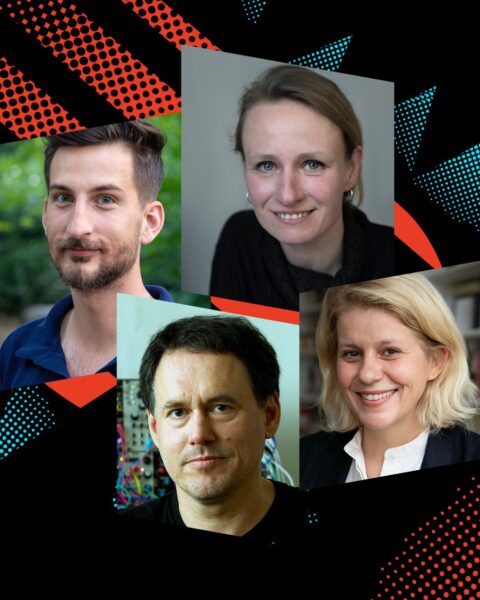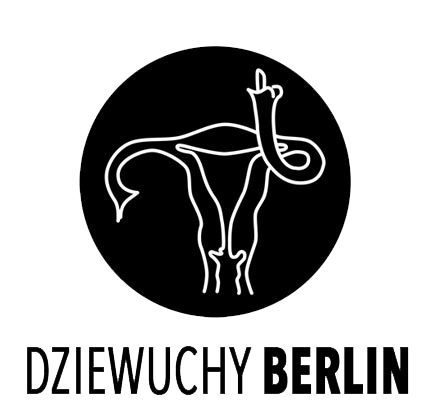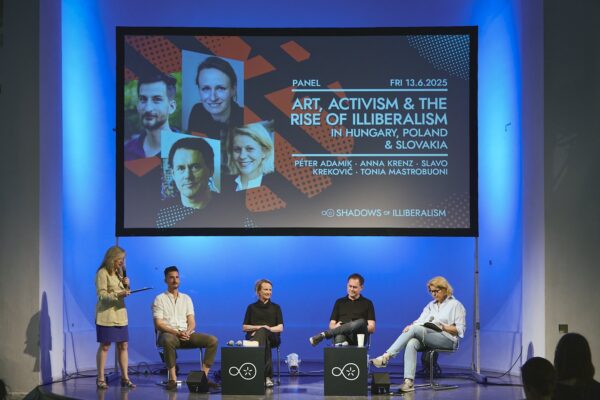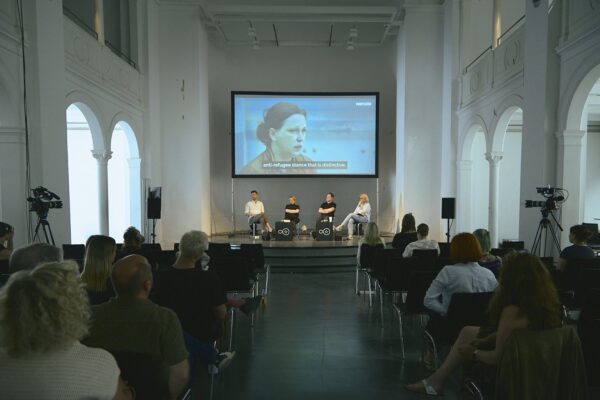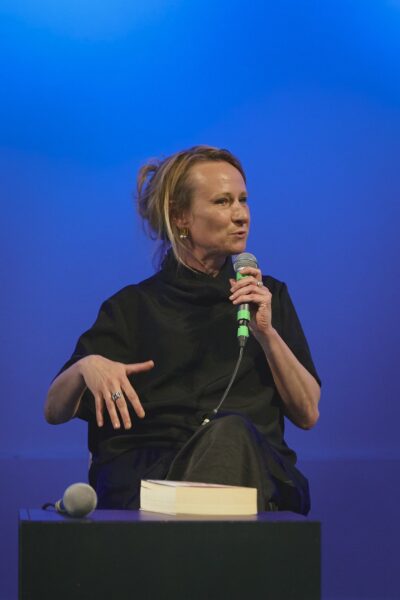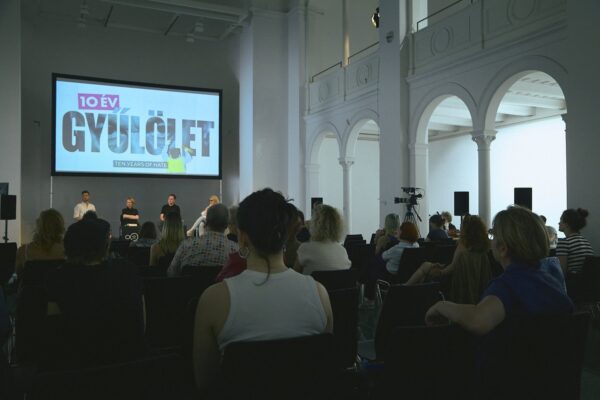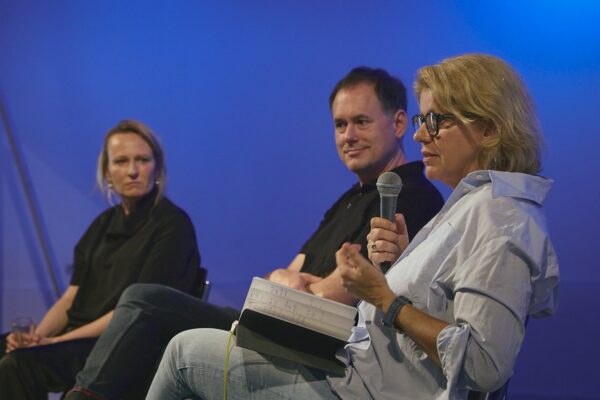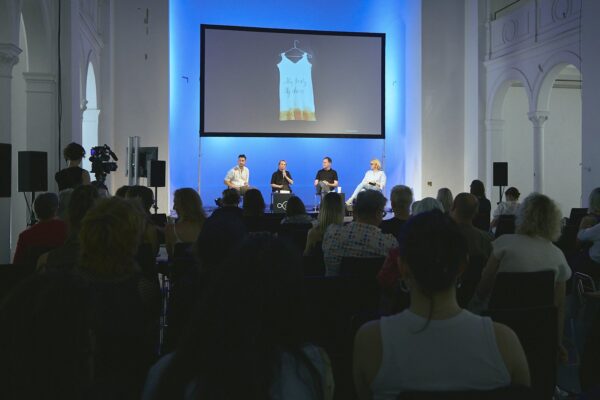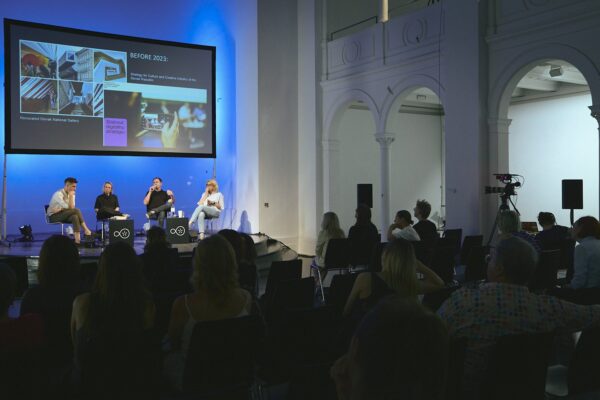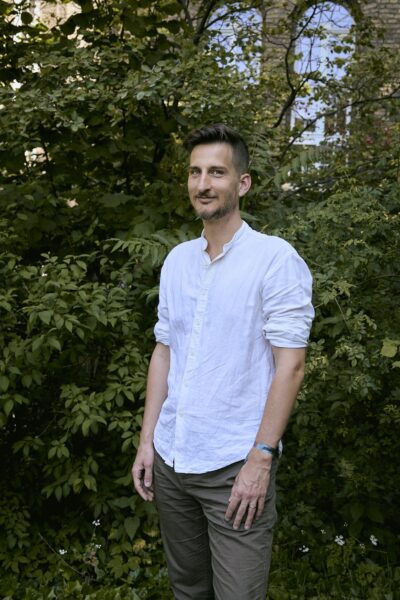Shadows of Illiberalism
Resisting the Radical Right June 13–15 2025
THE 35th CONFERENCE OF THE DISRUPTION NETWORK LAB
studio 1, KUNSTQUARTIER BETHANIEN, marianneplatz 2, 10997 Berlin & STREAMING Workshop at Stadtwerkstatt, Karl-Liebknecht-Straße 11, 10178 Berlin
Curated by Tatiana Bazzichelli (Director, Disruption Network Lab, IT/DE)
Streamed for free. No registration required to follow the stream.
Full programme here: https://www.disruptionlab.org/shadows-of-illiberalism#art-activism
Friday, June 13, 2025
18:40 – 20:40 · PANEL: Art, Activism & the Rise of Illiberalism in Hungary, Poland & Slovakia
Péter Adamik (Freie Ungarische Botschaft, HU/DE), Anna Krenz (Artist, Architect and Activist, Founder Dziewuchy Berlin, PL/DE), Slavo Krekovič (Artistic Director, A4 Space for Contemporary Culture, SK). Moderated by Tonia Mastrobuoni (Journalist, Correspondent La Repubblica, IT/DE).
Today, when nationalist and conservative forces are rising across Germany, Europe and beyond, a critical, transnational outlook is more crucial than ever. This panel presents case studies and projects that address the rise of illiberalism across Central and Eastern Europe, focusing specifically on Hungary, Poland and Slovakia. It also looks at the countermeasures that have been adopted both locally and abroad, thanks to the efforts of diasporic communities in these countries and in Berlin. Speakers will explore how art serves to challenge authoritarian power structures, confront propaganda and the ongoing war on culture. The panel will examine the political dimensions of artistic practice and how art and activism can respond effectively to strengthen and support grassroots communities. Which political and artistic strategies can shift public consciousness and drive real political change? Can art truly save us?
Hungary used to be among the rather progressive, well-developing countries in the Central Eastern European region in the 90’s and in times of socialism when the country was often referred to as the “happiest barrack” in the Eastern Block with its soft-handed “Goulash-Communism”. 35 years after the fall of communism, Viktor Orbán has successfully built up during 15 years of reign a “Goulash-Democracy”, or turning the tone more serious, Illiberal Democracy, sending the country economically to the bottom of the league in the EU, its people trapped with low salaries, a more than ever divided society and a constantly shrinking population. Although illiberalism may appear to be gaining strength as well-connected right-wing radicals rise to power around the world, this cannot be a long-term success when paired with mafia-like organised state corruption. Péter Adamik from the Freie Ungarische Botschaft will expose the real face of the Orbán’s System and the authoritarian playbook his government is exporting. In his talk, “Trapped in the Goulash Democracy: Illiberalism is not the answer”, he will use footages from “The Dynasty” – the recent Direkt36’s documentary about the economic empire of the Orbán family, and present artistic and activist practices to generate a critique of the status quo.
Polish women and men have a long tradition of resistance and political art, both of which have shaped Polish culture for decades. Under the conservative PiS government in Poland (2015–2023), democracy became a fragile structure. The determined efforts of thousands of activists, including those abroad, ultimately restored a pro‑democracy administration, proving that collective struggle can succeed. The fight for democracy remains inseparable from the fight for women’s rights, and art continues to serve as a powerful tool of resistance.
An auto‑ethnographic perspective on feminist Polish activism and political art in Berlin reveals how these practices counter the illiberal narratives promoted by conservative regimes and build transnational feminist solidarity. Berlin is home to a large and partly politically engaged Polish diaspora. Since 2016, the Dziewuchy Berlin collective has organised protests and demonstrations in solidarity with women* and the LGBT+ community in Poland, as well as campaigns for women’s rights in Germany, reacting and responding to political events in both countries and countering right-wing movements. For example, Anna Krenz’s ARTivist interventions—such as Global Scream (One‑Minute Scream, 2019) and Instant Theatre (2020)—blur the lines between art and protest, challenging conventional definitions of political art. Initiatives and projects of Dziewuchy Berlin reshaped perceptions of Polish women in Berlin, showcasing their resilience and resistance, at the same time offering empowerment.
Slavo Kreković, the artistic director of A4, a Space for Contemporary Culture in Bratislava, will talk about “Slovakia’s War on Culture: Destruction and Resistance”. Since September 2023, the new Slovak government has launched a systematic attack on democracy, civil society, minorities and also the cultural sector—dismantling institutions, rewriting legislation, and replacing experts with loyal extremists, including those at national institutions as well as the main funding body Slovak Arts Council. The talk maps the unfolding devastation and highlights the tactics of response by the cultural community: the formation of voluntary cultural activist platforms, and waves of protests and artistic resistance. As illiberalism advances through institutional capture and ideological cleansing, the cultural field in Slovakia becomes both a target and a frontline of resistance.
